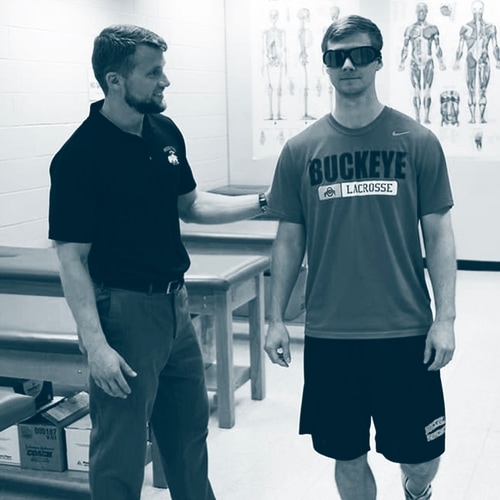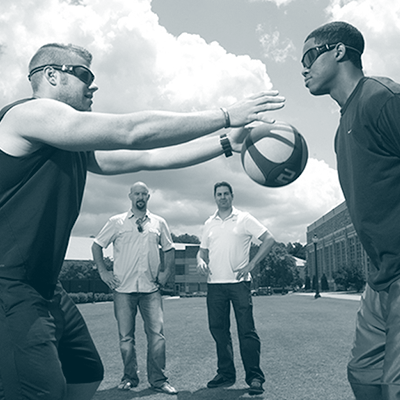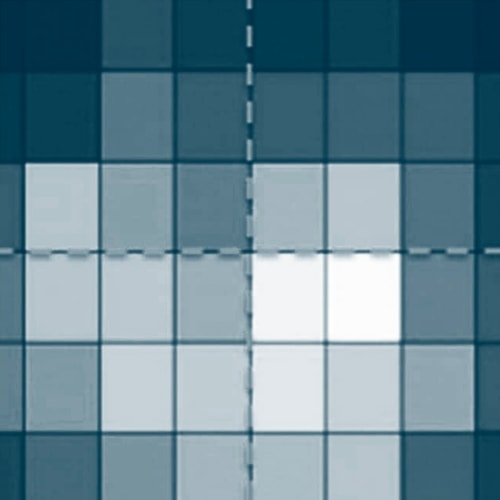Onze brain trainingen bestaan uit diverse innovatieve technologieën welke ontwikkeld zijn door een aantal van onze partners. Alle trainingsapparatuur, zowel online als op onze locatie, is getoetst aan – en ontwikkeld door wetenschappelijk onderzoek. Hieronder kun je een aantal van deze wetenschappelijke onderzoeken vinden. Een aantal onderzoeken hiervan zijn ook gelijk voorbeelden van de toepassingen die onze brain training biedt op het gebied van gezondheid en menselijke prestaties.
SENAPTEC –
Eye–Hand Coordination
The Effect of Stroboscopic Visual Training on Eye-Hand Coordination
SENAPTEC –
Visual-Motor Training in Rehabilitation
Neuroplasticity Following Anterior Cruciate Ligament Injury: A Framework for Visual-Motor Training Approaches in Rehabilitation
SENAPTEC –
Strobe training improves visual cognition
Improved Visual Cognition Through Stroboscopic Training
SENAPTEC –
Perceptual and Visual-Motor Abilities
Mapping the Structure of Perceptual and Visual-Motor Abilities in Healthy Young Adults
SENAPTEC –
Elite Youth Football Goalkeepers
Stroboscopic Visual Training: A Pilot Study with Three Elite Youth Football Goalkeepers
SENAPTEC –
Anticipatory Timing
Stroboscopic Training Enhances Anticipatory Timing
Memory Training and Benefits for Quality Of Life in the Elderly
In a year-long case study with one elderly person with memory problems, NeuroTracker training and memory training interventions were used to investigate if long term benefits could be found. Results showed improvements in memory assessments and in quality of life measures, based on questionnaire assessments.
The Limitations of Attentional Resources Across Developmental Groups: A Three-dimensional Multiple Object Tracking Study
This study investigated the resource limits for dynamic visual attention across development using a short NeuroTracker training program. The results revealed that perceptual-cognitive functions develop with age, and that NeuroTracker measures can be used for characterizing the development of resource allocation in attentional processes.
Perceptual-Cognitive & Physiological Assessment of Training Effectiveness
As part of a multi-year research project, the goal of this study is to develop methods for assessing the efficacy of training (including live and simulated platforms), by validating measures of cognitive workload that characterize skill acquisition. NeuroTracker assessments were performed during live and simulated flight at different difficulties of maneuvers, with assessment of technical performance and physiological metrics. NeuroTracker measures effectively revealed the cognitive loads involved with each level of flight.







